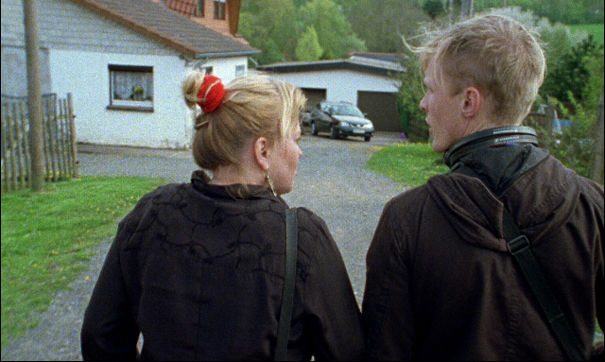Real-life Soap Opera
Heavily autobiographical account of a director's family quest, ALL MY FATHERS adds to the 2010 Berlinale trend of troubled parenthood.

ALL MY FATHERS
Jan Raiber will remember his 30th birthday for a long time. Not only did his first feature-length film premiere at the Berlinale in the section Perspektive Deutscher Film, but it also put a full stop to a chapter of his life marked with insecurity and doubts.
Rainer had spent most of his life with a vague feeling that he may have been fathered by a different person than his younger siblings. Having decided to finally determine his place in the family history, Jan set out in pursuit of long-suppressed facts. He armed himself with a camera and became the director and lead actor of an autobiographical documentary.
ALL MY FATHERS tells a story that is deeply personal and not that uncommon, which initially makes us wonder whether we have any business watching it. However, once Jan’s search starts producing shocking results and we witness real people reacting to the soap-opera twists of their life, we are taken for an emotional rollercoaster ride that is hard to resist.
The first fruits of Jan’s detective work come quickly. He learns that, at the time of his birth, his mother was married to a man called Uwe, which leads him to conclude that Uwe is his biological father. Or is he?
While the film does convey criticism of the conservative line that parents’ authority should be indisputable and their personalities virtually unknown, it primarily functions as an inadvertent satire on human selfishness and cowardice. Once it has broken the wall of silence, the film puts in plain sight how manipulative people can be when they are unwilling to pay the price of their past mistakes.
What distinguishes ALL MY FATHERS from an underproduced reality show that tracks down long-lost sweethearts is the honesty with which Rainer approaches his craft, as well as the courage to wash dirty laundry in public. These qualities turn the satire into a light comedy of manners where we would rather laugh off than judge the characters’ flaws.
Indeed, the film evokes an inordinate amount of laughter given the seriousness of its content. This is mostly due to the flippancy of the film’s most memorable character, Jan’s mother, who is evidently unable to cope with the burden of responsibility. We cannot help laughing at all the confusion she caused, however obvious it may be that the people affected by her actions do not find the events as funny as we do.
Raiber manages to develop a slice-of-life episode into a well-rounded story. Those who have no taste for reality shows will still easily enjoy the young filmmaker’s effort, as it produces genuine rather than fabricated emotions.


301 Moved Permanently